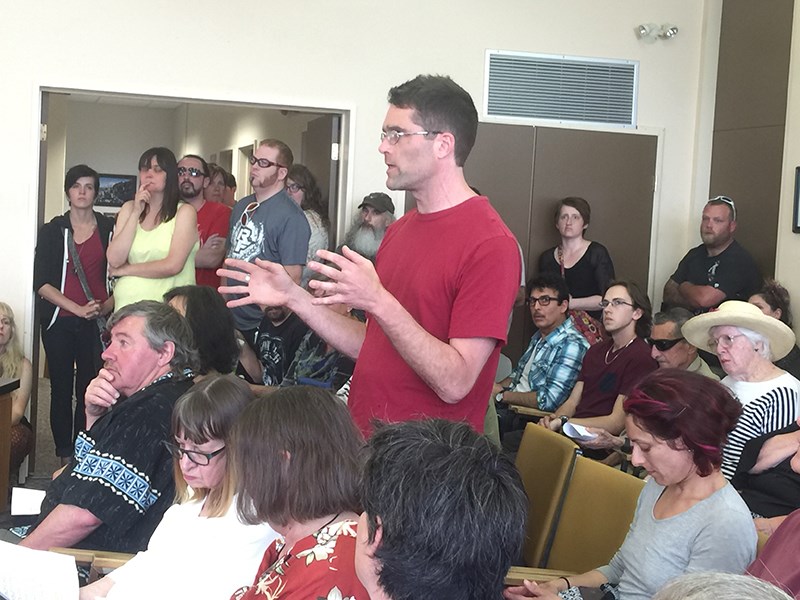City of Powell River council has moved to have city staff begin investigating the process of regulating medical-marijuana dispensaries.
Councillor Russell Brewer motioned at the Tuesday, May 17, committee of the whole meeting, with council chambers at capacity with medical marijuana supporters, to have staff look into how the city can allow the dispensaries to operate, similar to the way other BC municipal governments have approached the increasingly widespread issue.
“I don’t want to wait around for another two years while the feds wait to decide how and when they are going to do what they may or may not do,” said Brewer. “We need to move on what we can control, and that’s location, size, hours of operation and who can go into these stores.”
While marijuana is outside the jurisdiction of local governments to regulate, the Local Government Act and Community Charter give local governments the regulatory tools needed to address some of the problems created due to the jurisdictional void; a legal grey zone that has encouraged the proliferation of dispensaries in communities throughout BC.
To address the same problems, cities including Victoria, Port Alberni, Squamish and Vancouver have already moved forward to amend bylaws that make it difficult to deal with the unlicensed businesses. City of Vancouver issued its first business licence for a Point Grey dispensary this week under changes it brought in last year.
“I’m really happy with [Powell River] council and the decision they made,” said Dan Clarke, director of Grassroots Botanicals Wellness Cooperative.
The co-op is one of two Powell River dispensaries the city’s lawyers sent warning letters to on May 11, informing them that they were operating outside of the city’s business licensing bylaws. The dispensaries faced steep daily fines of up to $15,000 if they did not cease the sale of marijuana products.
Grassroots co-op shut its doors immediately, but WeeMedical Dispensary Society on Marine Avenue did not. As of press time, WeeMedical was still selling marijuana products.
Supporters of keeping the dispensaries open and concerned citizens packed into council chambers to hear what direction council would take on the issue.
“I was surprised at the misinformation and, dare I say, ignorance of city council,” said resident Jason Hygaard. “Maybe it’s due to miseducation or isolation from major metropolitan centres that have had similar problems in the past. A penalty of $15,000 a day is offensive; it’s obscene.”
Clarke and three of his co-op members spoke as a delegation to council and said the closure will have an impact on medical users who are not able to access other forms of cannabis medicine from the current federal government program.
“The longer Dan’s co-op is closed, the more we have to worry because we may have to go to illegal drug dealers with products that could be laced with things like fentanyl,” said concerned resident Angela McKenzie.
While council was unable to talk specifically about why the letters had been sent, due to the decision being made in a closed meeting, council indicated that further information from that meeting would be made public at its Thursday, May 19, council meeting.
In the meantime, staff will begin looking at what bylaw amendments are necessary to license and regulate the dispensaries. As staff engages in that process, residents in the community are concerned about the interruption to their medical marijuana supply.
After the meeting, Clarke said he thought the issue of the city stepping up to regulate dispensaries happened because of public complaints due to the recent opening of WeeMedical.
“They had to do something and apply the law,” said Clarke. “If they were going to send a letter to one dispensary, they have to send a letter to the other.”



